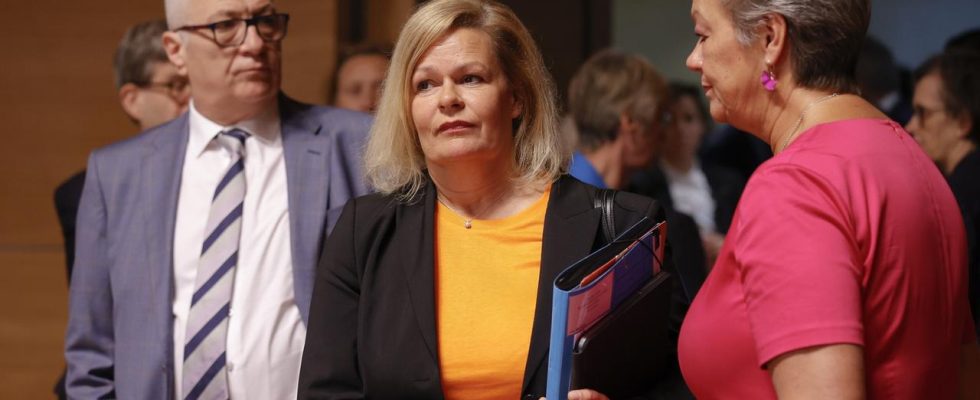The EU countries want to reform their asylum system – but how strict should it be? At the deliberations in Luxembourg it is still unclear whether there will be a compromise.
It is still not clear whether an agreement will be reached. EU Commissioner Ylva Johansson, who compared the ongoing debate about the reform of the asylum system with a marathon where you find yourself on the last 100 meters, is still optimistic that the 27 member states can now also manage this last distance.
The linchpin of the reform under discussion is that all refugees who come from a so-called safe third country or a country with a recognition rate of less than 20 percent must go through an accelerated procedure at the EU’s external borders. If the application is rejected, they should be returned directly from there.
skepticism on the part of riparian states
However, Mediterranean countries such as Italy in particular are skeptical about this, because according to the so-called Dublin rules, almost all asylum applications would have to be processed by the Italian administration, for example. Therefore, these countries want a limited number of border procedures and a reliable solidarity mechanism.
The EU Commission’s proposal that those countries that do not want to take in refugees pay money instead – there is talk of up to 20,000 euros – is also controversial in this context.
Faeser hopes for an agreement – but not at any price
All countries would have to make difficult compromises, says Federal Minister of the Interior Nancy Faeser, who is very much hoping for an agreement – if not at any price. “If we fail,” she warns, “then that will send the wrong signal.” That would lead to national isolation. Faeser demands: “I want us to have a common European understanding of human rights standards, including at all external borders.”
Germany is in favor of exempting families with small children and minors traveling alone from the fast track procedure. Luxembourg’s Foreign and Migration Minister Jean Asselborn regrets a position shared by only a few countries such as Ireland and Portugal. There are countries in the EU “that want to achieve a European migration policy – and a global policy”. However, according to Asselborn, other EU countries are “putting their faith in Fortress Europe”. Putting that together is not easy.
Consultations under time pressure
However, that would be the prerequisite for meeting what is possibly the EU’s greatest challenge. Because only when the 27 member countries have found a common position can consultations with the EU Commission and the European Parliament begin in order to complete the asylum reform before the next European elections in June 2024.

